February 11th, 2022 – Shabbat is almost here
And today we come back to the North of Africa, to listen to the voice of the iconic Haim Botbol.
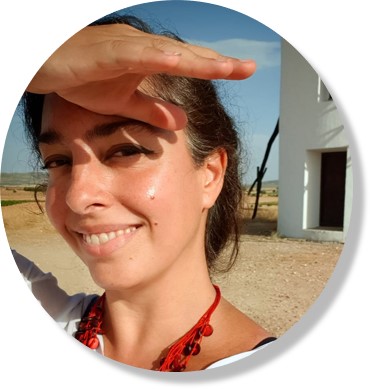
Hello, how are you? I hope well. Last Wednesday I had to chance to watch, in Centro Sefarad-Israel in Madrid, a documentary about a topic that I must bring to Music Before Shabbat: the story of the Xuetas. If you have the opportunity to watch it, try not to miss it. I leave you the trailer, here. And I will come back to this topic in a future, when I have an appropriate piece of music.
In the meantime, let’s go back to the North of Africa. I keep finding wonderful artists who remind us of times of conviviality that now seem lost. This year marks 69 years since the artist we are featuring today founded his own orchestra, at the age of 16. He was a pioneer in many aspects of his career. He is still alive and at 85 years old, he has not retired from the stage. The latest news I have found is that he performed in August last year in Casablanca. I have just asked him as a friend on Facebook, let’s see if the accepts me and I will ask him about this next dates with the stage. It is time to learn more about Haim Botbol!
🙏 Do you like Music Before Shabbat?
Then, please, spread the word.
Enjoy the music, Shabbat Shalom.
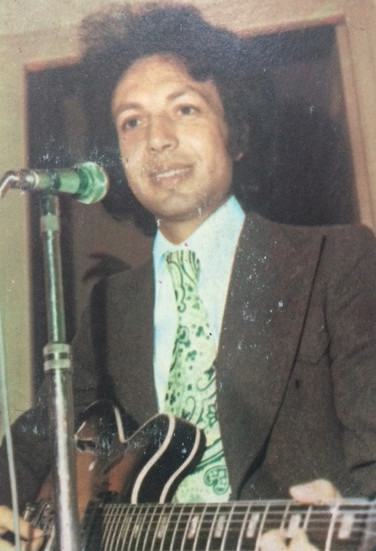
.
About Haim Botbol
There is much information about Haim Botbol. He is a star and he is still alive. The sources I am using for this biography are Dafina.net, Morocco Jewish Times, Jewish Music Institute and the blog by the extraordinary Chris Silver, Jewish Maghrib Jukebox.“Haïm Botbol […] was the first Moroccan artist to use an electric guitar and the first singer to wear a suit, as well as the first male artist to use the bendir, an instrument considered at that time to be the prerogative of women.” These are words by Khaoula Idrissi, in October 2019, in Morocco Jewish Times.
The beginnings
Haim Botbol (or Abitbol) was born in Fez, Morocco, in 1937. His father, Cheikh Jacob Abitbol, was a well respected violinist and vocalist who released a number of 45s in the 1950s. Botbol father was also a songwriter and close friends with all the jewish musical stars in Fez such as Zohra el Fassiya, Slimane el Maghrebi, Lilly Labassi, or famous musicians like David Harroush or Simon Sanae conductor of Salim Halali ‘s orchestra.
👉 Do you want to listen to the father? The nice channel “toukadime” uploaded this piece to Youtube.
👉 The concepts of qasidat and malhun/melhun appeared in the edition about Samy Elmaghribi. Feel free to check it.
👉 Remember there is a previous edition of MBS about Salim Halali, available here.
This 👇 picture of Jewish houses in the Mellah (Jewish quarter) of Fez (photographed in 1932 on the edge of the cemetery) is of public domain and I found it here.
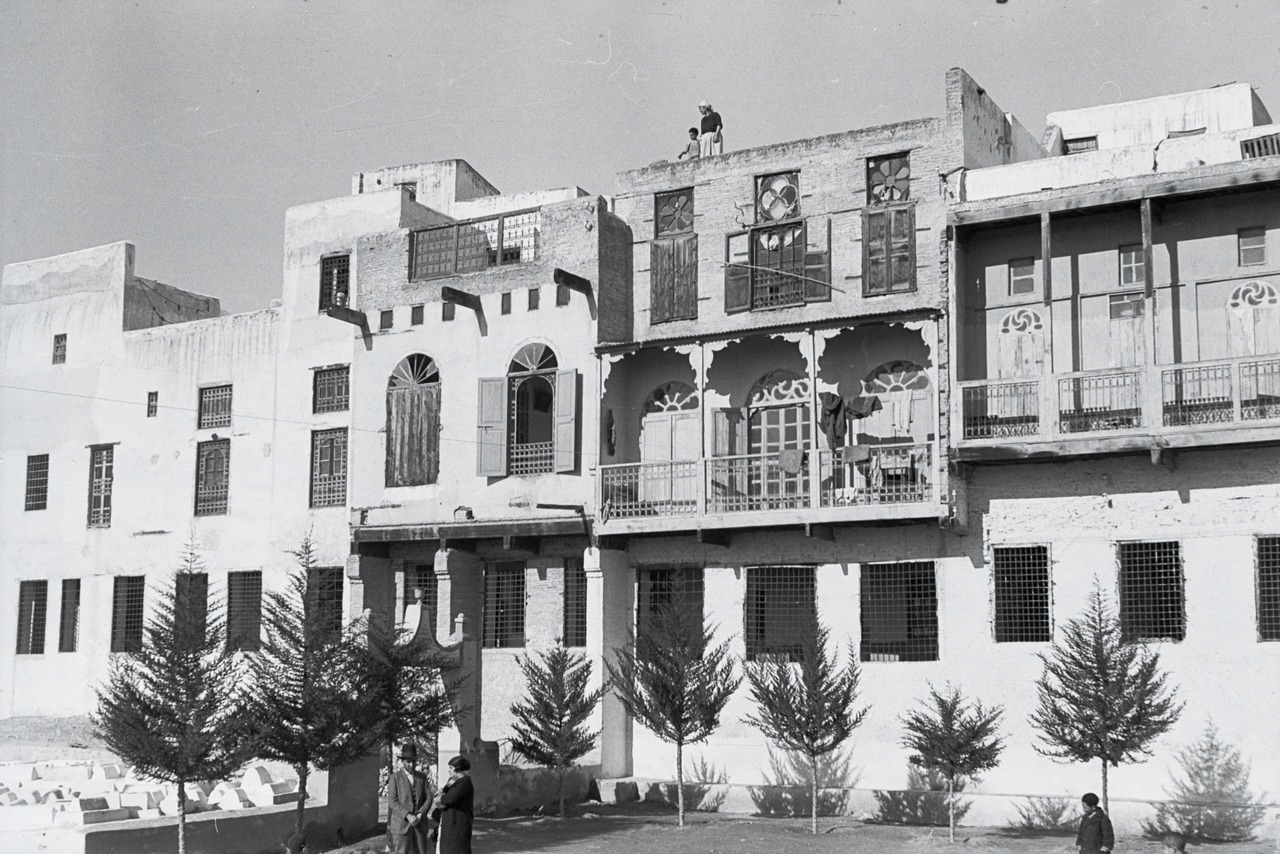
Creating his own path
Haim combined the work in his father’s orchestra with managing his own band of young musicians to perform modern repertoire like Chgoury* (essentially songs from Oran and Tlemcen**) and also popular Egyptian songs. During this period he recorded his own compositions which are now part of Moroccan national musical heritage. His quickly became famous and performed for large Jewish and Muslim audiences, from all levels of the Moroccan people, from the simplest weddings to the Royal Palace.
* About Chgoury, according to Simo Benbachir in Moroccan Jewish Times: The Chgouri is associated with many Jewish artists from the Maghreb, such as Mssika, and Sheikh El-Afrit in Tunisia; Salim Halali in Algeria; Sami Al-Maghribi, Zahra El-Fassia, Raymond El-Baidawiya and Botbol from Morocco […].
Chgouri is a popular song that revolutionized the artistic regulations of its time. It was inspired by many musical genres such as flamenco, “Gharnati”, “Melhoun”, “Aita” and “Gnaoua”. It has always been present in religious occasions as well as in the celebrations of weddings, baptisms and circumcisions, among both Jews and Muslims in Morocco. This is what makes it a musical genre that bears witness to tolerance and peaceful and brotherly coexistence between these two communities. […] The Chgouri has been neglected since the exile of Moroccan Jews. […]
** About Tlemcen and the influence of the Algerian music in Morocco, I invite you to check the edition about Saoud l’Oranaise, the one about Salim Halali and, very very interesting, the article “When a Jewish Moroccan singer revealed how Algerian hawzi art was plundered“, with statements from Marcel Botbol, the brother of Haim, like “Before, there were no cassettes or anything, to learn a song you had to pay” […] “If someone had learnt a song, it was because he had come back from Oran or Tlemcen. […] The greatest names in Algerian song came to Fez and my father invited them to our home,” said the late Marcel Botbol, citing Abdelkrim Dali and Mustapha Skandrani.” Read the article and you will find out the context of these words, that is meaningful.
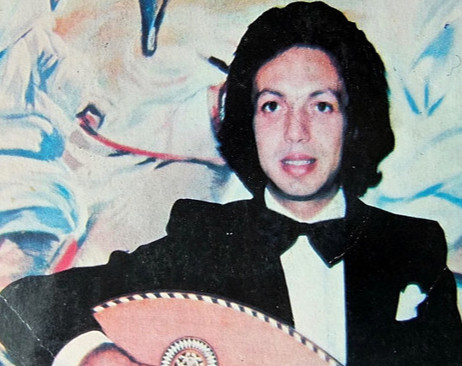 By the way, there was a news about the decease of Marcel Botbol because of covid in March 2020, that was refuted. But some weeks after, the news came back. I think that time it was true…
By the way, there was a news about the decease of Marcel Botbol because of covid in March 2020, that was refuted. But some weeks after, the news came back. I think that time it was true…
Do you want to watch Marcel Botbol playing? Check this video. He is the violinist in the white suite.
One more wonderful picture 👉 of Haim Botbol from Discogs.
The artistic consecration
Haim moved to Casablanca, where he performed in the most prestigious cabarets. From 1965 until the late 1970s he performed at “Sijilmassa“ the most famous cabaret in Morocco.
He is the last survivor of the Golden Age of Jewish Moroccan Music.
👉 For a review of his concert on the occasion of his 60 years of career on music, with many insights and details of his life, check this.
Educational activity
Haïm Botbol has contributed to the training of many Moroccan artists and musicians who have received his help and blessing, like Abdelwahab Doukkali, Fathallah Maghari, and Pinhas, among others.
About the piece
According to Discogs, the piece Baba Salah was released in 1973 for the label Boussiphone in a single together with Ghzali Kouani.
About Boussiphone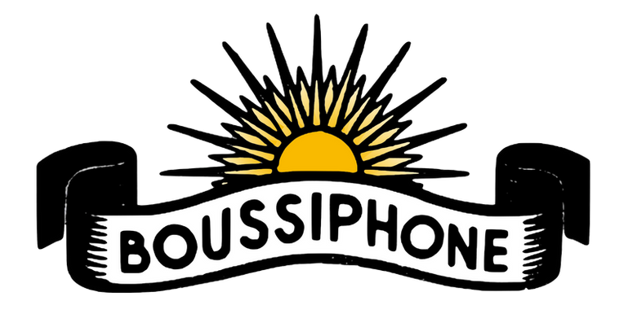
“The story of a legend; since the birth of music sound storage in the world, the Boussif family created a company in Morocco with the slogan: source of musical art with the BOUSSIPHONE label.
Mohamed Boussif created the company in 1938. The company was renowned for being the first to produce Maghrebi singers and musicians, around 1938. At that time, Arab music was mainly imported from other oriental countries. The family business continued to develop, while adapting its offer to technological developments. In 1949, the company started to produce 78 rpm vinyl records, and in 1960, the company moved on to 45 rpm and 33 rpm records. A new generation in listening support: the musicassettes in 1969 were born creating an industry of manufacture of disc, duplication of cassette, pressing of disc to the factory under the name Africson in 32 Rue des Bruyeres in Casablanca; the video cassette is then imposed on a world scale.” This info is from Discogs (translated from French). If you want to know what is the company nowadays, visit the website of Boussifreres.
It’s time to enjoy the music. Click the picture to listen to Baba Salah by Haim Botbol:
| Share this with a friend, right from here |
